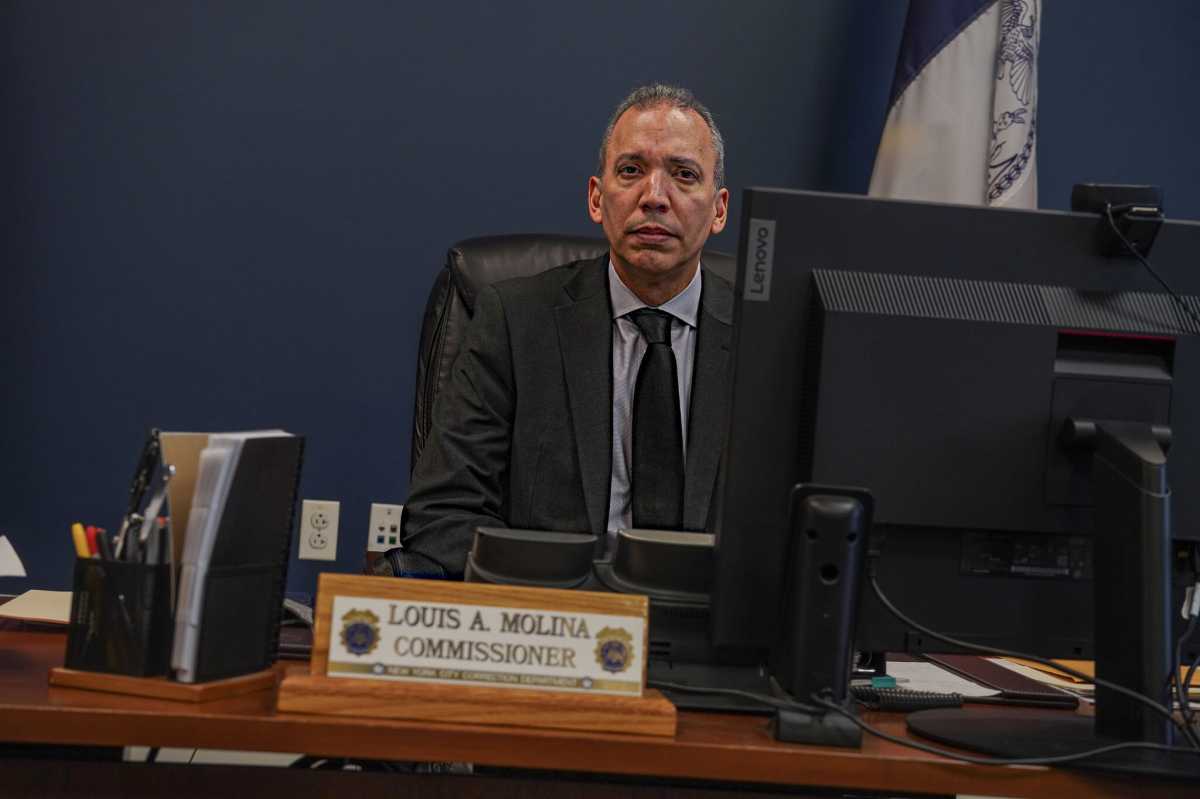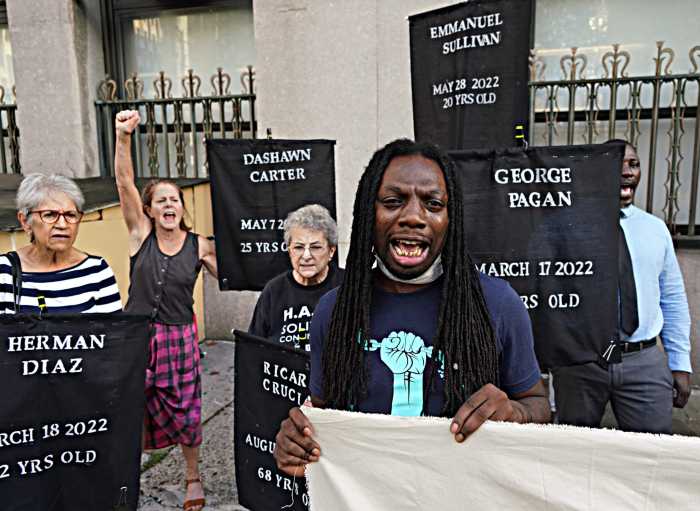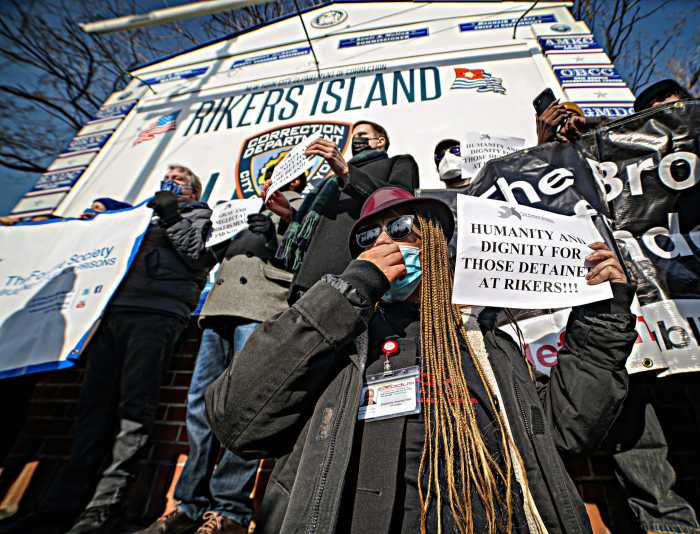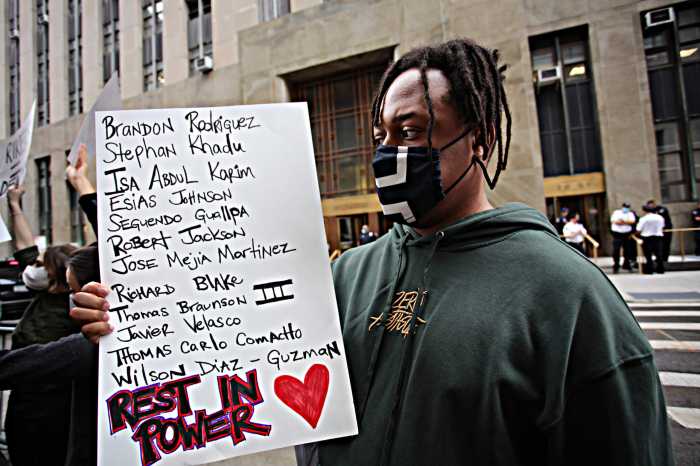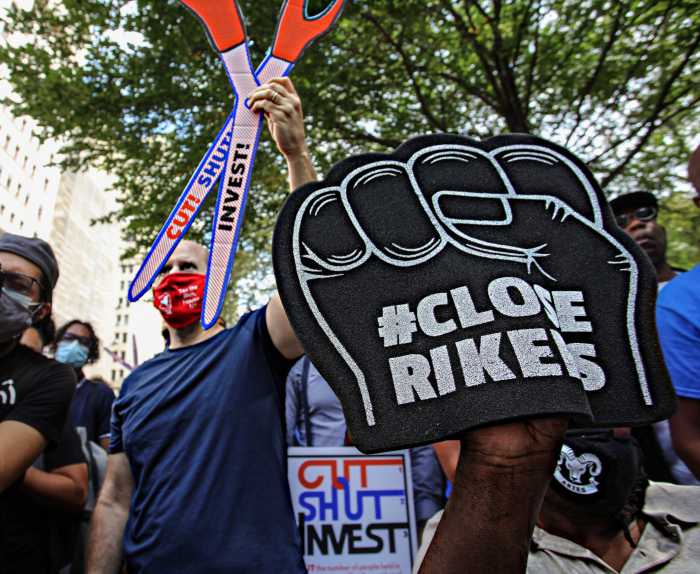Correction Commissioner Louis Molina sat down with amNewYork Metro for the first of a two-part interview where he spoke candidly regarding his first year as head of the Department of Correction and the state of Rikers Island as the facility edges closer to closure.
Molina recently met with amNewYork Metro inside of his office at DOC headquarters in Queens and looked back over his first full year as commissioner. Sitting at a conference desk with his fingers interlocked, Molina thought back to January 2022 when he first took over the role; while he champions the changes he says he has made to Rikers Island, he also asserted that there is still far more work to be done.
A Bronx native, Molina followed in his fathers’ footsteps to become a second-generation Marine, serving four years of active duty. Following his service, Molina used the GI bill to attend university and become a first-generation college graduate.
The commissioner credits much of the person he has become to his time in the Marines and the NYPD, as well as cultivating his role in leadership, ultimately leading him to the highest office in DOC.
“[The Marines] was a very positive experience. In hindsight, right, you don’t realize how undisciplined you are or immature you are until you go to the building blocks of something like military service. I’m not saying everybody needs that, but I think it was probably something in hindsight that I think was really beneficial to me,” Molina fondly recalled.
When Mayor Eric Adams tapped Molina to head the Correction Department, he inherited a Rikers Island that had already been committed to closure and had seen dire disinvestments that had bleak consequences on both those jailed and staff by seemingly leaving the facility to rot.
Molina admitted that the facility is “archaic,” and he began the arduous task of reestablishing the penal colony as an active jail that aimed to both incarcerate and rehabilitate in spite of its 2027 projected closure date.
Still, this was not an easy mountain to scale and Molina himself acknowledges that there is more that needs to be changed. Molina states that one of his first priorities tackled reinstating non-profit and religious visits both in person and through zoom in order to help motivate and care for those behind bars.
The commissioner criticized the previous administration for closing down what he feels are vital services for inmates.
“You still have to invest because you still have the responsibility to all the people that are placed in our custodial care — they still need services. I get it, there were a lot of unknowns, people were scared; we didn’t know what was gonna happen,” Molina said. “But the reality is this: Programming services should have never shut down for the wide scale that they did. And when you think about the people that are in our custody, I view them the same as I do patients in a hospital. So, if you have Bellevue, you’re not going to say the doctors come to work but the nurses stay home right, or the custodial staff stay home, the cafeteria staff — the ecosystem still needs to function.”
While the return of services came on Jan. 24, 2022 since the pandemic, Molina also looked to tackle the infamous staffing shortages due to injuries, extensive sick days, and triple hour shifts that DOC officers were forced to undertake previously.
“When I started in January, we had over 2,600 individuals on any given day that were out sick. We have significantly reduced that number down by 69%. So, for example, yesterday, the number of individuals that were out sick was 653. So, we’ve been trending now hitting under the seven hundreds. That is huge,” Molina said.
Molina charges that he also drastically reduced these numbers by both supporting staff but also holding them accountable.
Some of these numbers were achieved by addressing disciplinary backlog cases. The commissioner asserts that in January of 2022 the DOC had some 4,000 cases dating back to 2017, and Molina addressed approximately 2,600 cases through which he reinstated some staff and let others go.
“That’s probably more disciplinary cases adjudicated by any commissioner in New York City history,” Molina said. “So, we held staff accountable, but we also supported staff and I think that gave the staff the confidence to say, ‘let’s give this administration a try.’”
It has not been easy sailing. Next to the staffing shortages, one of the biggest public concerns resulted from the horrifying number of deaths in DOC custody during 2022 and missed medical appointments that reportedly contributed to a portion of those deaths.
In part two of our interview, set for Monday, Commissioner Molina will answer tough questions on topics including medical care, drug seizures, jail improvements, and his vision for the future.



